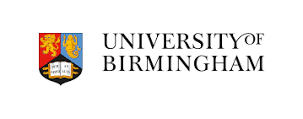Invest in a global career and reshape the future with our MSc Accounting and Finance degree. The world of accounting and finance is fluid and ever-changing, with innovations and practice constantly evolving to deal with the major challenges the world is facing, locally and globally.

Invest in a global career and reshape the future with our MSc Accounting and Finance degree. The world of accounting and finance is fluid and ever-changing, with innovations and practice constantly evolving to deal with the major challenges the world is facing, locally and globally.
To thrive in this industry, strong knowledge, intellectual imagination, integrity and up-to-date methods are essential. Our programme is designed to strengthen your existing knowledge, develop your skillset in accounting and finance for a sustainable business future, and prepare you for a successful global career.
Why MSc Accounting and Finance at Birmingham?
Who Is This Course For?
This course has been especially designed for students with a good first degree in accounting and finance who wish to further specialise in the area and get ready as a professional to meet new challenges in an interconnected global world, with complex but intellectually stimulating business problems to be solved.
The MSc Accounting and Finance offers you the chance to study in traditional areas such as business taxation and accounting theory, but you can also choose from a variety of new areas, including alternative finance options, social and environmental accounting and data analytics.
This course prepares you not only to be a well-qualified and confident finance practitioner, but ensures you have the knowledge you need for a career at the forefront of the emerging trends in accounting and finance.
All modules listed below are worth 20 credits, with the exception of your Dissertation, which is worth 60 credits. Unless indicated otherwise the modules listed for this programme are for students starting in 2024.
Our Strategy
Birmingham 2030 sets out our aspiration to establish Birmingham in the top 50 of the world’s leading universities. This is a highly-challenging ambition, and the Strategic Framework sets out the ways in which we will pursue this.
History
Our University grew out of the radical vision of our first Chancellor, Joseph Chamberlain. Founded in 1900, Birmingham represented a new model for Higher Education. We were England’s first civic university, a place where students from all backgrounds were accepted on an equal basis.
More than 100 years on, our Birmingham campus has grown to 672 acres, and we also now have a campus in Dubai. Each year, we welcome more than 30,000 students from across the world. Our size has changed, but our civic commitment has not.
Our academic history
We have a long and proud history of firsts at the University of Birmingham; we were the first and are now one of the largest - civic universities in the UK.
Achievements and Nobel Prizes
Our history of firsts applies to our research too. For more than 100 years, our research has influenced how we live our lives.
Birmingham is where pacemakers and plastic heart valves were developed, where the first artificial vitamin (Vitamin C) was synthesised, and where the cavity magnetron was developed, leading to applications such as radar and the microwave oven.
In addition, allergy vaccines were pioneered, the key components of artificial blood were synthesised, and the first clinical trials of the contraceptive pill outside the US were carried out, having a fundamental impact on the life for women worldwide.
As a founder member of the Universitas 21 global network of research universities, we are home to world-class researchers, the work of our staff and alumni has been recognised with 10 Nobel Prizes, across areas such as the arts, sport and public life, and three prizes were awarded in 2016 for Physics and Chemistry.
We have been integral to some of the greatest scientific discoveries of recent times, such as the Higgs Boson and Gravitational Waves, and are pioneering new approaches to tackling some of the biggest global challenges facing society; from antibiotic resistance and maternal health to conflict resolution and access to education.
Today, the University continues to build on this pioneering heritage. We are still at the forefront of research, leading the field in many of the emerging disciplines of the 21st century, such as nanotechnology, gene therapy, robotics and the use of virtual reality in the study of archaeology.
We are continually developing new initiatives to enrich our teaching and learning. We are constantly questioning.
Historic buildings
At the heart of our University are the redbrick buildings of Chancellor’s Court, the legacy of the vision of our first Chancellor, Joseph Chamberlain.
Designed by leading architect Sir Aston Webb (who also designed other British landmarks such as the façade of Buckingham Palace and the Victoria and Albert Museum), the majority of the work finished in 1909 and remains the focal point of our campus.
In the centre of the courtyard is the soaring clock tower, affectionately known as ‘Old Joe’, which can be seen across the city of Birmingham: an emblem of the University’s prestige. The Chancellor’s Court semi-circle was fully completed with the opening of the Bramall Music Building in June 2012.
Other historic buildings include the Barber Institute of Fine Arts, a grade-two listed Art Deco building that was designed by Robert Atkinson in the 1930s and was opened in 1939 by Queen Mary.
© 2025 coursetakers.com All Rights Reserved. Terms and Conditions of use | Privacy Policy